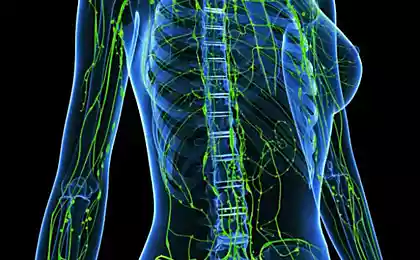406
There is no perfection in the world: how to deal with perfectionism
The pursuit of the ideal is not always good. Sometimes it causes us to criticize ourselves and think that everything around us is judging. In addition, psychiatrists know that perfectionism prevents to treat depression. Translation of the article of the Professor of the University of Massachusetts Amherst Susan Krauss Whitbourn, which tells about the types of perfectionism and the rules of combating it.

© Katerina Kamprani
There is nothing wrong to aim to the ideal. However, if the results of this work will almost never cause you feelings of satisfaction, probably you are a perfectionist. One of the problems associated with this trait, is that through the pursuit of excellence all looks really. In the end, instead of good memories you get anxiety and worry about small things.
Supporters of "better do it yourself" is sometimes faced with the need to achieve goals, only to again and again to count their own oversight. Often no one else sees, so a rigorous analysis is only a barren reflection of perfectionism. Is it worth it in this case, throw the work in the trash? Do I need to redo it, wasting bug fixes extra day or an extra week? Or should I just shrug, assuming that no one noticed, and move the bugs section of the experience which, it is hoped, will also serve at another time?
Habit to look around the ideal common much stronger than it may seem. Scientists believe that perfectionism is often the cause of the emergence or deepening depression. According to Vera, Beke, head of the research group McGill University (Canada), "diathesis-stress" model of perfectionism suggests that "daily stress (e.g., failures) often results in depression for people with heightened vulnerability in the search of excellence." In other words, when you are all the time looking for flaws, it has your mood and it can result in the depressive episode.
Is it possible to reduce its tendency to perfectionism? Before answering this question, we need to understand what are the perfectionists. Beca, and her co-authors note that these people are divided into two types: "with the pursuit of the ideal of personal criteria" (Personal Standards — PS) and "self-critical" (Self-Critical — SC).

PS-perfectionists has its own system of criteria that allows them to estimate the degree of perfection. They set the bar high for ourselves and are realistic, specially created for the task solution methods. People with the character of this type derives guilt from the replicas of the inner voice that speaks of failure and makes them think, if the surrounding is always looking with passion and hostility.
Perfectionists SC-type under stress due to the non-adaptive defense mechanism known as "dodging". They believe that they will not be able to achieve perfection, and therefore does not take the case. That's why — despite the fact that PS and SC-type are at risk — self-critical perfectionists often show signs of depression. The sense of hopelessness they face, turns into an obstacle that is difficult to overcome.
According to Beke, perfectionism is often a deep assimilation of high parental standards and criticism. For people in childhood may feel that they will never be good enough. But researchers have found that, whatever the reason of perfectionism, it increases the risk of developing depression in the background of a certain kind of stress and psychological pressure to achieve goals.
More than a year, experts observed a group of 47 people who were treated for depression on an outpatient basis. They conducted tests before starting therapy, six months and one year after its launch. On average, each member of the research took place on 15 psychotherapy sessions. Questions in the tests were made on the basis of a special scale of "almost full achievement of the ideal", list the clinical manifestations of depression and tendency to perfectionism scale for assessment of anxiety level and integrity. Participants who have gone more than a year for treatment, also held a series of interviews on an individual scheme.
Scientists wanted to find out how much conventional therapy affects the status of people who are prone to perfectionism, especially amid the stress of achievements. They came to the conclusion that perfectionists respond to treatment worse than other patients. In this therapy less impact on the mood of patients with SC-type, when they are faced with stress in relationships with other people. Anxiety and a tendency to be overly conscientious, unlike perfectionism, did not affect the treatment.
If perfectionism hinders the treatment of depression, I want to ask how to reduce their tendency to search ideal and self-criticism?
Ask yourself, where does the desire to be perfect. Perhaps you feel vulnerable to parents, teachers or other adults who demand your compliance their far from reality standards? Maybe in response to all the efforts you heard only the criticism and learned strange voice, looked up in your actions mistakes? Knowing that perfectionism comes from education in childhood, often helps to find an adult way to ease his grip. If you experience stress, accept it and determine its origin. The fact that stress achievements not like the stress of interpersonal relationships and the tendency to distinguish one from the other — an important step on the way to work on their perfectionist expectations. People SC-type is particularly strongly influenced by the stress of the relationship, calling the feeling that everyone was looking at them disapprovingly. To cope with it, you can ask for help from loved ones: let them tell how to actually relate to your actions, and what I see from others.
Challenge your dysfunctional beliefs. Proponents of the philosophy "do it yourself" able without any benefit to beating yourself up over small mistakes, but perfectionists sometimes expect that their actions will be exemplary. Give yourself permission to make mistakes from time to time and don't think everything just waiting for you to make a mistake. From time to time make mistakes intentionally. Observations show that students with excellent academic performance are risk less willing closer to release. As a result, they miss useful courses simply from fear of losing their high status. But the students with worse grades and less anxious as a result, more get. If you allow yourself to make a mistake, use the time for reconciliation with the fact of its existence. Don't think about what you did wrong, think about what you have done correctly, and as a result, the error will be not so important.
Source: theoryandpractice.ru

© Katerina Kamprani
There is nothing wrong to aim to the ideal. However, if the results of this work will almost never cause you feelings of satisfaction, probably you are a perfectionist. One of the problems associated with this trait, is that through the pursuit of excellence all looks really. In the end, instead of good memories you get anxiety and worry about small things.
Supporters of "better do it yourself" is sometimes faced with the need to achieve goals, only to again and again to count their own oversight. Often no one else sees, so a rigorous analysis is only a barren reflection of perfectionism. Is it worth it in this case, throw the work in the trash? Do I need to redo it, wasting bug fixes extra day or an extra week? Or should I just shrug, assuming that no one noticed, and move the bugs section of the experience which, it is hoped, will also serve at another time?
Habit to look around the ideal common much stronger than it may seem. Scientists believe that perfectionism is often the cause of the emergence or deepening depression. According to Vera, Beke, head of the research group McGill University (Canada), "diathesis-stress" model of perfectionism suggests that "daily stress (e.g., failures) often results in depression for people with heightened vulnerability in the search of excellence." In other words, when you are all the time looking for flaws, it has your mood and it can result in the depressive episode.
Is it possible to reduce its tendency to perfectionism? Before answering this question, we need to understand what are the perfectionists. Beca, and her co-authors note that these people are divided into two types: "with the pursuit of the ideal of personal criteria" (Personal Standards — PS) and "self-critical" (Self-Critical — SC).

PS-perfectionists has its own system of criteria that allows them to estimate the degree of perfection. They set the bar high for ourselves and are realistic, specially created for the task solution methods. People with the character of this type derives guilt from the replicas of the inner voice that speaks of failure and makes them think, if the surrounding is always looking with passion and hostility.
Perfectionists SC-type under stress due to the non-adaptive defense mechanism known as "dodging". They believe that they will not be able to achieve perfection, and therefore does not take the case. That's why — despite the fact that PS and SC-type are at risk — self-critical perfectionists often show signs of depression. The sense of hopelessness they face, turns into an obstacle that is difficult to overcome.
According to Beke, perfectionism is often a deep assimilation of high parental standards and criticism. For people in childhood may feel that they will never be good enough. But researchers have found that, whatever the reason of perfectionism, it increases the risk of developing depression in the background of a certain kind of stress and psychological pressure to achieve goals.
More than a year, experts observed a group of 47 people who were treated for depression on an outpatient basis. They conducted tests before starting therapy, six months and one year after its launch. On average, each member of the research took place on 15 psychotherapy sessions. Questions in the tests were made on the basis of a special scale of "almost full achievement of the ideal", list the clinical manifestations of depression and tendency to perfectionism scale for assessment of anxiety level and integrity. Participants who have gone more than a year for treatment, also held a series of interviews on an individual scheme.
Scientists wanted to find out how much conventional therapy affects the status of people who are prone to perfectionism, especially amid the stress of achievements. They came to the conclusion that perfectionists respond to treatment worse than other patients. In this therapy less impact on the mood of patients with SC-type, when they are faced with stress in relationships with other people. Anxiety and a tendency to be overly conscientious, unlike perfectionism, did not affect the treatment.
If perfectionism hinders the treatment of depression, I want to ask how to reduce their tendency to search ideal and self-criticism?
Ask yourself, where does the desire to be perfect. Perhaps you feel vulnerable to parents, teachers or other adults who demand your compliance their far from reality standards? Maybe in response to all the efforts you heard only the criticism and learned strange voice, looked up in your actions mistakes? Knowing that perfectionism comes from education in childhood, often helps to find an adult way to ease his grip. If you experience stress, accept it and determine its origin. The fact that stress achievements not like the stress of interpersonal relationships and the tendency to distinguish one from the other — an important step on the way to work on their perfectionist expectations. People SC-type is particularly strongly influenced by the stress of the relationship, calling the feeling that everyone was looking at them disapprovingly. To cope with it, you can ask for help from loved ones: let them tell how to actually relate to your actions, and what I see from others.
Challenge your dysfunctional beliefs. Proponents of the philosophy "do it yourself" able without any benefit to beating yourself up over small mistakes, but perfectionists sometimes expect that their actions will be exemplary. Give yourself permission to make mistakes from time to time and don't think everything just waiting for you to make a mistake. From time to time make mistakes intentionally. Observations show that students with excellent academic performance are risk less willing closer to release. As a result, they miss useful courses simply from fear of losing their high status. But the students with worse grades and less anxious as a result, more get. If you allow yourself to make a mistake, use the time for reconciliation with the fact of its existence. Don't think about what you did wrong, think about what you have done correctly, and as a result, the error will be not so important.
Source: theoryandpractice.ru























